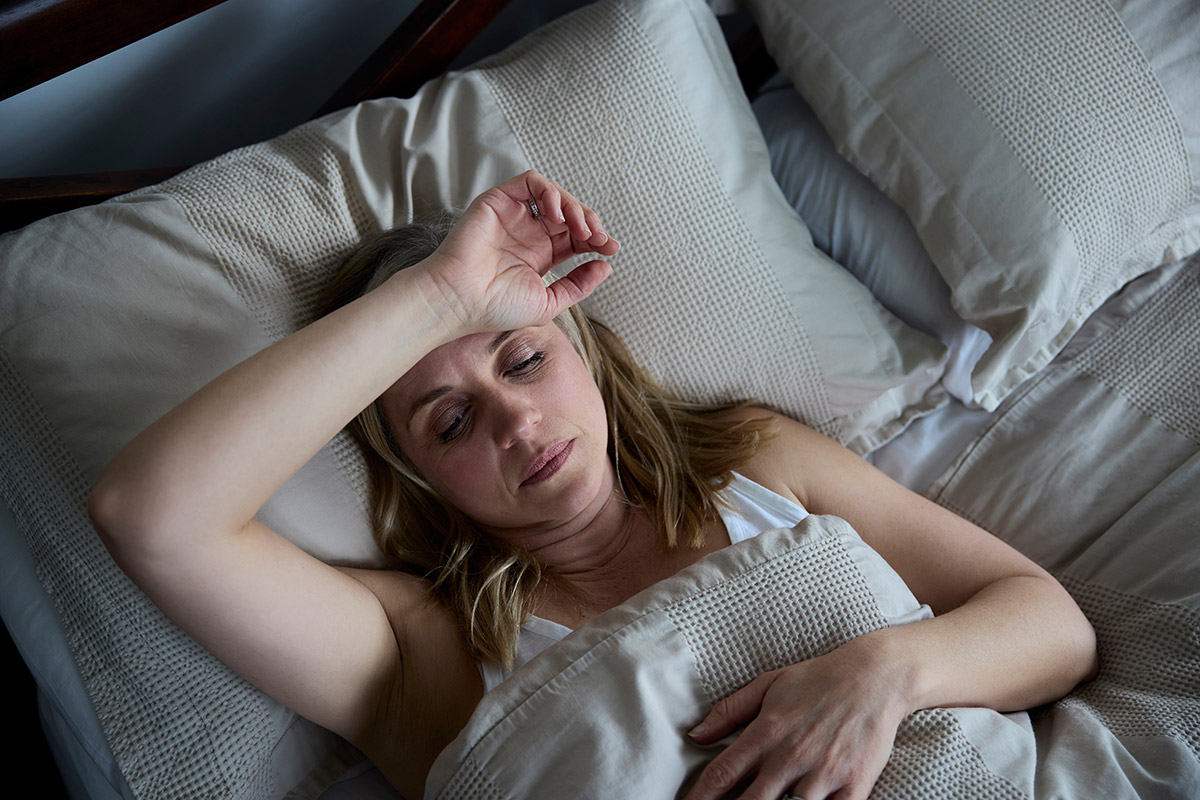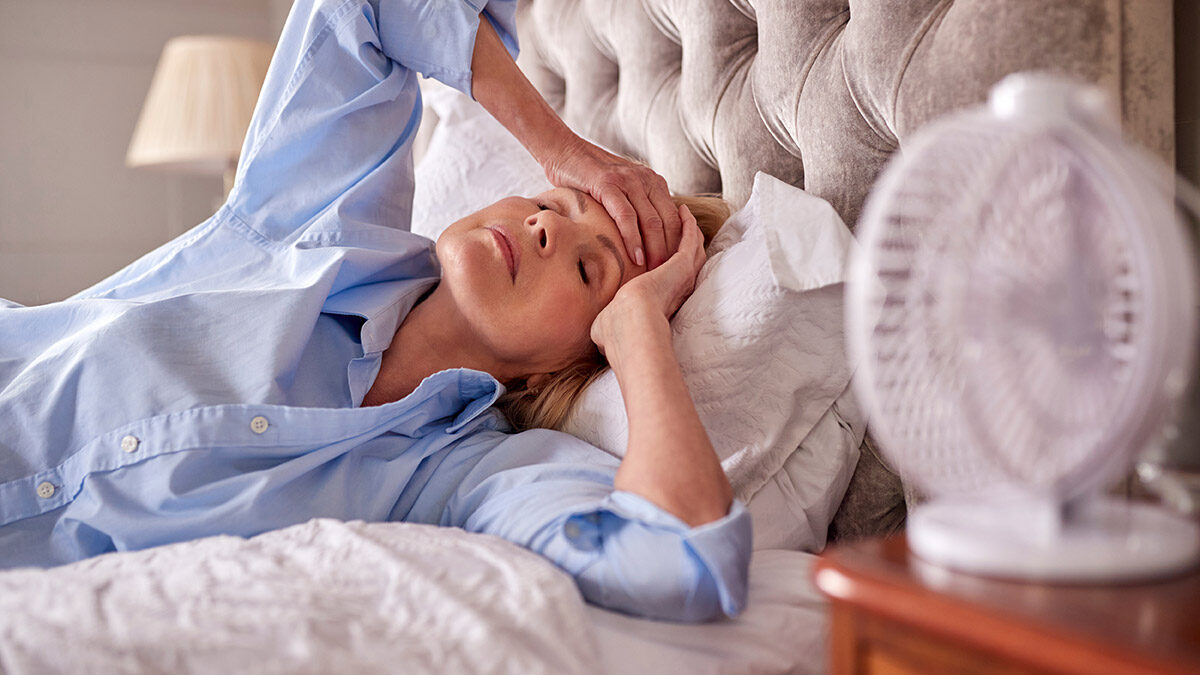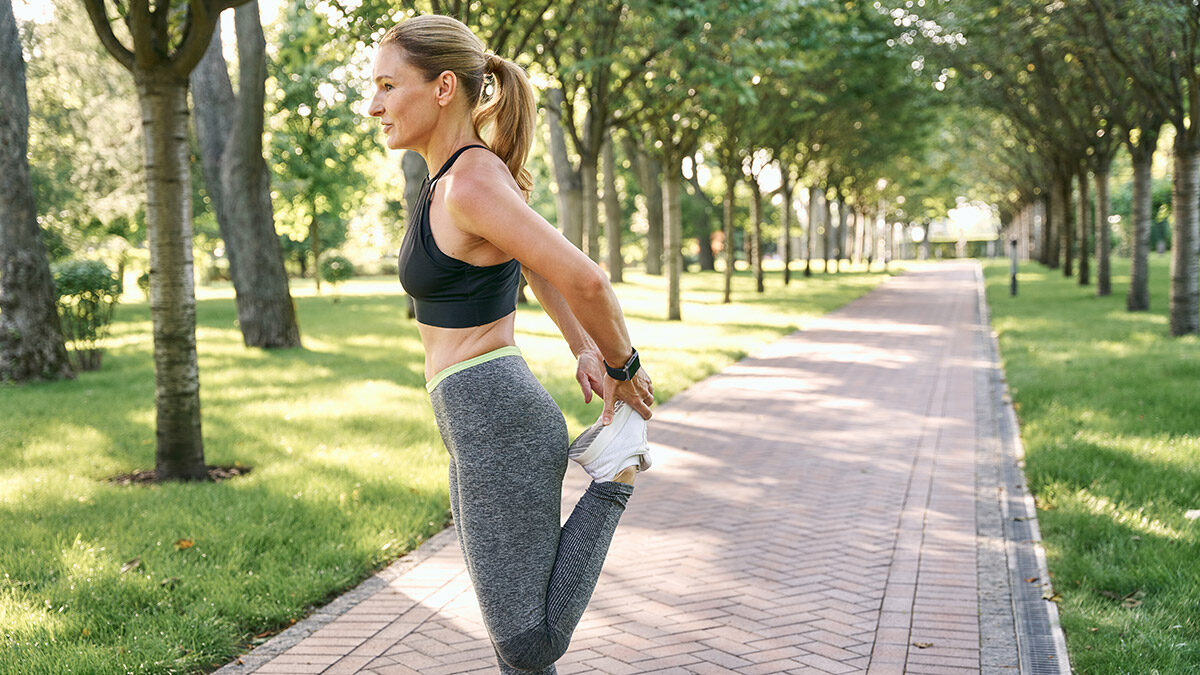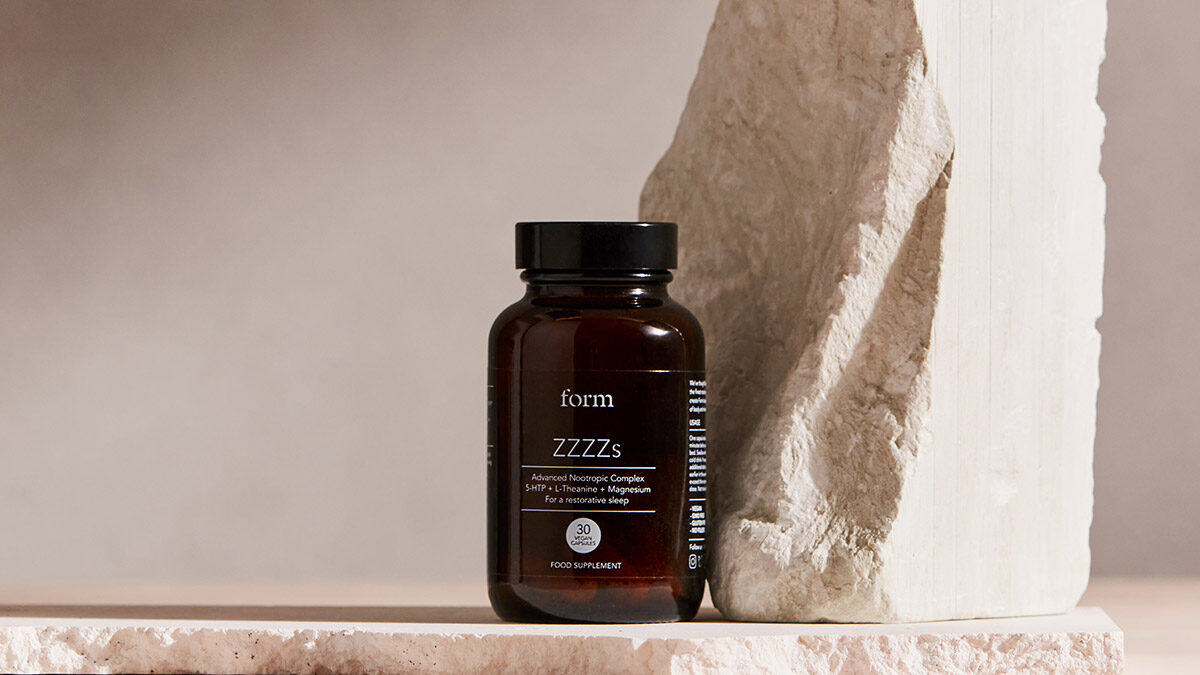How To Sleep in the Heat During Perimenopause

Getting a decent night’s sleep during perimenopause can be a challenge at the best of times, and the struggle intensifies when the scorching summer weather hits. Some of the most common perimenopause symptoms, like night sweats and anxious thoughts, can have a big impact on getting the NHS-recommended eight hours of rest.
According to statistics, sleep issues are common during this stage of life, affecting as many as 47% of women experiencing perimenopause – the years of hormonal fluctuation leading up to the natural end of a woman’s menstrual cycle. And when summer rolls around, achieving a peaceful slumber becomes an even trickier task thanks to the unpleasant combination of high humidity and sticky, damp conditions.
The good news is that there are lots of lifestyle interventions that can effectively turn sleepless nights into restorative ones. We spoke to a health expert to find out how to improve sleep quality and reclaim your well-deserved rest.

How perimenopause affects sleep
Despite the fact that over one billion women around the world will have experienced perimenopause by 2025, the topic is still shrouded in mystery. “During perimenopause, women experience hormonal fluctuations, in particular, a decline in oestrogen levels,” explains Carolina Goncalves, superintendent pharmacist at Pharmica.
“The hormonal changes that happen in the run-up to a woman’s final period can trigger an increase in body temperature, which can affect their ability to fall asleep and stay asleep,” she adds. Characterised by a sudden feeling of intense heat throughout the body, hot flushes are one of the most common signs of perimenopause. “These can ramp up at night, further disturbing sleep,” Goncalves continues.
While some women are in perimenopause for just a few months or a year, it can last up to a decade for others, having a long-term effect on sleep. As sleep and temperature regulation are closely interconnected processes, the double whammy of declining oestrogen and balmy summer temperatures can have a debilitating effect on maintaining a healthy sleep schedule.

What practical steps can you take to improve sleep?
We all know by now the many benefits of a good night’s kip, from our immunity to our energy levels. So how can you make sure you’re getting enough of it?
According to Goncalves, simple night-time strategies can make all the difference during the summer. “I recommend keeping the bedroom cool by using fans, an air conditioning unit, or opening windows during cooler times of the day. Using light bedding, such as linen sheets and lower tog duvets, and wearing breathable sleepwear can also help with temperature regulation.” Try swapping out heavy flannel pyjamas for light cotton or bamboo materials, which are soft, remain cool on the skin and wick moisture away from the body.
Speaking of materials, Goncalves says your choice of upholstery can affect room temperature. “Try using light-coloured curtains or blinds to reflect sunlight away rather than attracting it in,” she suggests. “I like to keep electronic devices away from the bed too, and use a sleep mask or earplugs to block out light and noise.”
If hot flushes have prevented you from getting a decent night’s kip, an afternoon cup of coffee can feel like a godsend. However, Goncalves says it’s best to steer clear of caffeine pick-me-ups and stick to decaf options if you’re struggling to sleep.
Caffeine peaks in the blood within 30-60 minutes of drinking it, giving you a fairly instant perk, but it has a much longer half-life of three to five hours, which can keep you up at night. She explains: “As well as limiting coffee, try to avoid eating heavy meals and drinking alcohol close to bedtime.” She adds that food containing high amounts of sugar and saturated fat can typically increase the likelihood of sleep disruptions, while foods rich in fibre and unsaturated fat tend to better promote sleep.
While it’s tempting to put off a gym class, Goncalves says you should schedule fitness earlier in the day, because exercise raises your core body temperature, and it takes time for the body to cool down afterwards. “Instead, practice relaxation techniques such as deep breathing or meditation before bed,” she suggests.

What about supplements?
If you’re struggling with sleep and want to explore natural remedies, Goncalves says that upping your supplement game could help you to get more rest, although she adds that their efficacy can vary.
“Herbal supplements like valerian root, chamomile, or black cohosh have sleep-promoting properties that may support more restful sleep,” she notes. Form’s nootropic sleep supplements ‘ZZZZ’s’ combine 5HTP with calming amino acids and the dietary minerals magnesium and zinc to support sleep naturally. Studies have found that 5HTP, in particular, can boost serotonin production, which plays a key role in regulating the sleep-wake cycle, making it easier to fall asleep and stay asleep throughout the night.
Remember, it’s always advisable to check with your doctor that any new supplements you’re considering don’t clash with any medications you may be taking.
“If lifestyle modifications and natural remedies aren’t helping, you might need to chat to your GP about medical interventions or prescription treatments for managing sleep disturbances related to perimenopause and hot weather,” says Gonclaves.
Hormone replacement therapy (HRT) is a treatment used to help relieve some of the most common symptoms of menopause, such as hot flashes, night sweats, mood swings and reduced sex drive. It works by replacing hormones that are at a lower level due to menopause. It’s worth speaking to your doctor as some types of HRT have been linked to potentially serious side effects, but there may also be big benefits and the NHS say that these generally outweigh the risks.
Finally, some women find that mindfulness-based talking therapies make a difference. Cognitive Behavioural Therapy (CBT) is a form of psychotherapy that focuses on addressing and changing unhealthy patterns of thinking and behaviour. In CBT sessions, a therapist typically helps you to identify unhelpful thought patterns around sleep and teaches you to replace them with more realistic and positive thoughts.
“As with most things, it’s important to give each option and strategy a try to see what works best, as results can vary from person to person,” says Gonclaves. That said, if you’re finding your perimenopause symptoms particularly difficult to manage, make an appointment to speak to your GP as treatments and support are available.


















